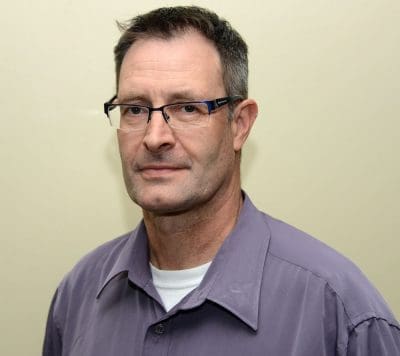AG Institute Australia (AIA), the peak industry body for agricultural and natural resource management professionals, says a national accreditation scheme is needed for professionals working in the agricultural sector.
Similar to the way in which accountants can become accredited Chartered Accountants to designate a high level of professionalism and ongoing training, the AIA is developing a voluntary national accreditation scheme which will enable ag professionals to become accredited “Chartered Agricultural Professionals”.
Accreditation under the voluntary scheme would enable Chartered Agricultural Professionals (CAPs) to demonstrate professionalism, commitment, education, expertise and experience.
“The accreditation scheme is aimed at protecting the reputation and service delivery capability of those working in the agricultural, agribusiness and natural resource management sectors,” AIA chair Andrew Bishop said.
“The scheme would underpin the confidence of the public and the profession that the advice and services provided by CAPs will promote best practice standards.”
Growth of private sector consultants behind move
Mr Bishop believes an accreditation scheme has become a higher priority in recent years as private sector consultants increasingly take on roles once occupied by government employed specialists.
“Over the last two decades or so, government agencies have reduced their staff numbers and now employ more private sector consultants to deliver programs for agriculture,” he said.
“Accreditation offers an opportunity for consultants to have their skillset independently quantified, and helps ensure contractors receive quality advice from consultants.”
The national accreditation scheme will focus on three areas of professional development: technical skills, professional and ethical standards, and continuing professional development.
The scheme will consist of an initial application process, renewal based on evidence of on-going professional development, and an auditing process.
“Many countries around the world have accreditation schemes for professionals in agriculture – in the United States, some 13,000 professionals are either Certified Crop Advisers (CCA) or Certified Professional Agronomists (CPAg), while in Canada, over 10,000 professionals are registered as professional Agrologists,” Mr Bishop said.
“We believe it is time Australia installed a national accreditation scheme for Chartered Agricultural Professionals, which will complement some industry specific schemes already in place.”
Ag Institute Australia (AIA) has released the Professional Accreditation – A Chartered Agricultural Professional Scheme Policy Paper, designed to inform and guide discussion on the development of a national accreditation scheme.
Source: AIA




More uneccessary protective barriers to entry. Usually accreditation costs a lot; and usually leads to higher prices for Consultants.
What is being ‘protected’, I’d like to ask … People in the bush who live and work on the land, usually have a very good, in-built BS detector. So, I ask again; “Why?”
Look what happenned to the CCA recently. A debacle. Diploma Disease is alive and well in our nation and all this accreditation and qualification push is focussed upon generating money for educational institutions and professional organisations. You need a certificate to open an envelope these days. Where are the real steps being taken to reduce red tape. All that happens is that the requirements to actually do the job get lost in the qualifications that one needs to aquire to be let to do the job. Over time this grows and often the requirements of the work do not significantly change but the level of education and paper required to do the job reach ever higher levels. There are thousands of university and VET graduates who have degrees and competency certificates from training organisations who can’t get a job and who have large debts for their “education” which has been essentially of limited use to them. Trade qualifications are touted as being absolutely necessary to do basic maintenance work and the quality of tradesmens’ work collectively has never been poorer. Where once a tradesman took pride in the fit and finish with the materials they used, now its bog it and fill in the gaps with a silicon gun. I have spent almost 40 years in education and teachers have more qualifications and accreditations than ever yet we have falling literacy rates, basic knowledge deficits, poor mathematical competency, poor scientific understanding and terrible analytical and critical thinking skills for a huge number of young people in our society. Don’t leap to the conclusion that more qualifications and accreditation of “professionals” will give better outcomes for clients. If this was the case there would be no need for professional indemnity insurance and we wouldn’t read about doctor’s accountants and lawyers and a host of other ” accredited” professionals and service providers engaging in shoddy practice and criminal activities. Be careful what you wish for.
Of course the government knows best and there are here “to help you”.